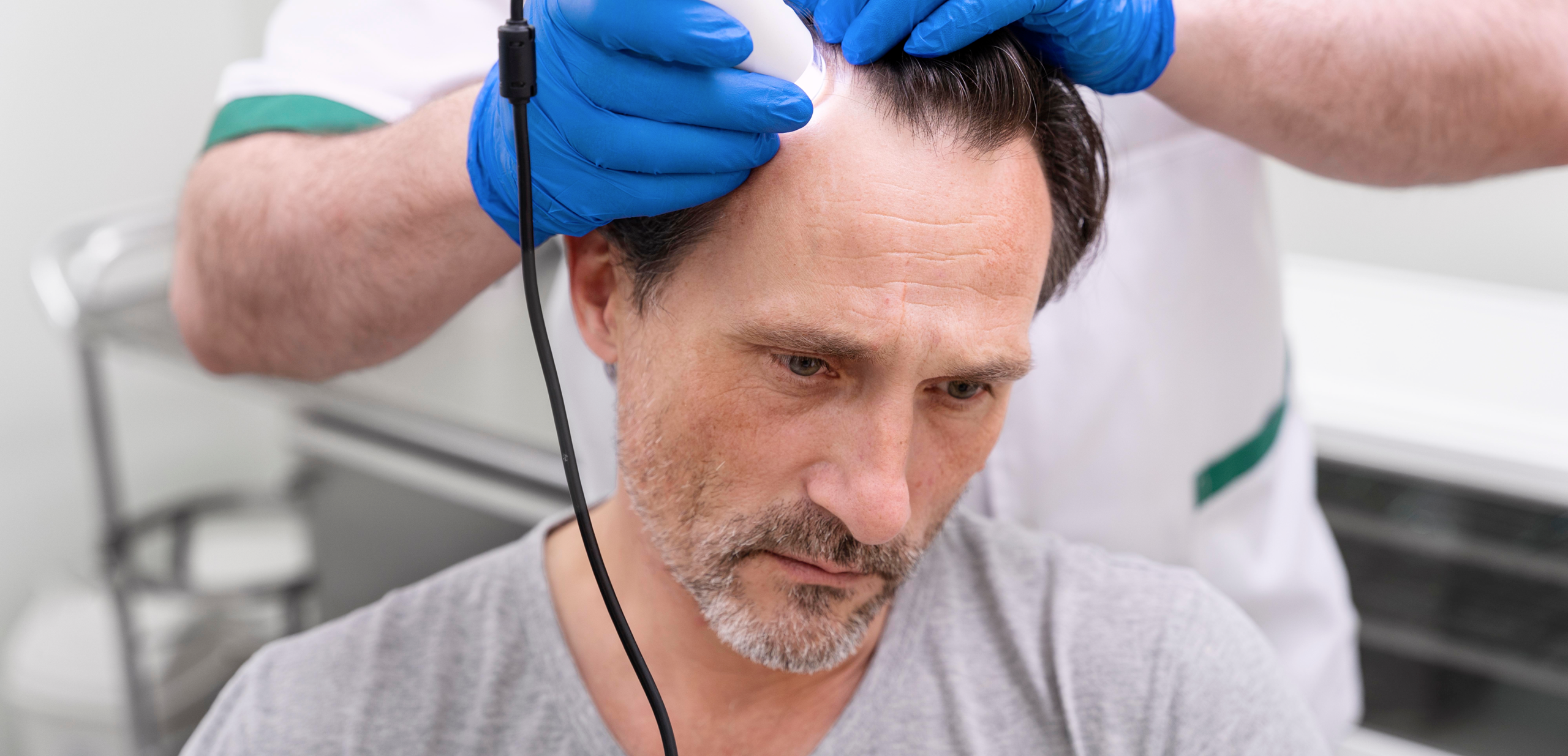Sexual well-being plays a crucial role in our overall health and happiness. However, many individuals and couples experience challenges related to their sexual lives, which can impact their emotional connection, self-esteem, and relationship satisfaction. Whether you’re facing issues like sexual dysfunction, low libido, communication problems, or other intimacy-related concerns, sexual therapy can offer effective solutions to improve your sexual health and enhance your relationship.
In this article, we will explore the different types of sexual therapy, its benefits, how it works, and when to consider seeking help. If you’re looking to gain a better understanding of your sexual health or improve intimacy with your partner, this guide will provide valuable insights into how sexual therapy can be a powerful tool in achieving a more fulfilling and healthy sexual life.
What Is Sexual Therapy?
Sexual therapy is a type of therapy designed to help individuals and couples overcome various sexual issues that may be affecting their well-being or relationships. It focuses on improving communication about sexual matters, addressing psychological and emotional barriers to healthy intimacy, and providing guidance on enhancing sexual function.
Sexual therapy can help individuals understand the connection between their emotions, mental health, and sexual experiences. It can also provide practical tools and techniques to improve intimacy, sexual performance, and emotional connection within relationships.
Types of Sexual Therapy
Sexual therapy is a broad field, and different approaches can be used depending on the nature of the problem. Here are some of the most common types of sexual therapy:
1. Individual Sexual Therapy
In individual sexual therapy, a person seeks help to address personal sexual concerns, which may include:
- Low libido or lack of desire for sex.
- Sexual trauma or abuse.
- Performance anxiety or concerns about sexual ability.
- Emotional barriers such as shame or guilt related to sexuality.
An individual therapist works with the person to explore the underlying causes of these issues and develop strategies to improve their sexual health. This can include cognitive-behavioral therapy (CBT), mindfulness techniques, or relaxation exercises to manage anxiety and stress related to sex.
2. Couples Sexual Therapy
Couples sexual therapy is designed for partners who are experiencing sexual difficulties together. The therapist works with both individuals to address common relationship and sexual issues, such as:
- Communication problems regarding sexual needs and desires.
- Differences in sexual desire or mismatched libidos.
- Intimacy issues such as lack of physical connection or affection.
- Sexual dysfunctions affecting one or both partners, such as erectile dysfunction or vaginal dryness.
The goal of couples therapy is to help partners understand each other’s perspectives, improve emotional intimacy, and rebuild a satisfying sexual relationship. Therapy often involves exercises designed to promote closeness and trust, improve communication, and explore new ways to enhance pleasure.
3. Sexual Dysfunction Therapy
For those who experience sexual dysfunction (e.g., erectile dysfunction, premature ejaculation, or painful intercourse), sexual therapy can help identify the root cause of the problem and offer practical solutions. Sexual dysfunction therapy may include:
- Medical treatments for physical causes, such as medications or devices (e.g., pumps, vibrators).
- Psychological interventions to address anxiety, depression, or past trauma that may be interfering with sexual function.
- Behavioral exercises such as the sensate focus technique, which encourages couples to focus on non-sexual touch and intimacy to reduce performance pressure.
4. Sexual Addiction Therapy
Sexual addiction, or compulsive sexual behavior, can create significant emotional and relational challenges. Therapy for sexual addiction focuses on understanding the underlying causes of the addiction and helping individuals regain control over their behavior. This therapy can include:
- Individual therapy to address personal issues contributing to the addiction.
- Cognitive-behavioral therapy (CBT) to identify and change harmful thought patterns and behaviors.
- Support groups or group therapy to provide community support and accountability.
Therapists often use a combination of approaches to help individuals develop healthier relationships with sex and intimacy.
When Should You Consider Sexual Therapy?
Sexual therapy is not just for people experiencing severe sexual problems; it can be beneficial for anyone looking to improve their sexual health, well-being, and relationship dynamics. Here are some scenarios where seeking sexual therapy might be helpful:
- Ongoing sexual issues: If you or your partner are experiencing consistent problems related to sexual desire, arousal, or satisfaction, therapy can provide professional guidance.
- Emotional or psychological barriers: If past trauma, anxiety, or guilt is affecting your sexual experiences, therapy can help address these underlying issues.
- Relationship difficulties: Communication problems or intimacy issues can often impact sexual satisfaction. Therapy can assist in improving both communication and intimacy within a relationship.
- Desire for improvement: Even if you are not facing a particular problem, sexual therapy can be a proactive approach to enhancing intimacy and ensuring that your sexual relationship remains fulfilling and healthy.
- Medical conditions: Conditions such as erectile dysfunction, menopause, or pelvic floor disorders may require specialized therapy to manage and improve sexual function.
How Does Sexual Therapy Work?
Sexual therapy typically begins with an initial consultation, where the therapist will gather information about your concerns, medical history, and relationship dynamics. Depending on your situation, the therapist will develop a treatment plan tailored to your needs.
Key Elements of Sexual Therapy:
1. Communication Skills
Improving communication is central to sexual therapy. Many sexual issues arise from misunderstandings or a lack of open dialogue between partners. The therapist may help you:
- Learn to express sexual desires and concerns more openly.
- Foster an environment of trust and emotional safety.
- Develop active listening skills to better understand each other’s needs.
2. Education
Sexual education is often an important part of sexual therapy. For many people, learning about the anatomy of sexual response, common sexual concerns, and healthy sexual practices can help reduce anxiety and shame. Understanding what is happening in the body and how sexual health works can empower individuals and couples to take control of their intimacy.
3. Techniques and Exercises
Sexual therapists often assign exercises or tasks to help individuals or couples improve their sexual relationships. These can include:
- Sensate focus exercises, where partners explore non-sexual touch and build intimacy over time.
- Behavioral assignments to reduce anxiety, such as practicing relaxation techniques before intimacy.
- Exercises to improve sexual function, such as pelvic floor strengthening for women experiencing painful sex.
4. Addressing Underlying Emotional Issues
Many sexual concerns are linked to deeper emotional or psychological issues, such as anxiety, depression, or trauma. A sexual therapist will work with you to uncover these underlying factors and help you address them, often through cognitive-behavioral therapy (CBT) or mindfulness techniques.
Benefits of Sexual Therapy
There are numerous benefits to seeking sexual therapy, including:
- Improved communication between partners about sexual needs and desires.
- Enhanced intimacy and connection in relationships.
- Increased sexual satisfaction and fulfillment.
- Addressing sexual dysfunctions and enhancing sexual performance.
- Healing from past trauma and overcoming emotional barriers to intimacy.
- Building confidence and self-esteem related to your sexual health and body image.
Finding the Right Sexual Therapist
When seeking sexual therapy, it’s essential to find a qualified and experienced therapist who is well-versed in the specific challenges you’re facing. Here are some tips for finding the right therapist:
- Seek a licensed professional: Look for a licensed therapist with specific training and experience in sexual therapy or sexual health.
- Research specialties: Find a therapist who specializes in the areas where you need help, such as sexual dysfunction, trauma, or relationship issues.
- Comfort and trust: It’s important to feel comfortable with your therapist, as sexual therapy often involves sensitive topics. Don’t hesitate to ask questions or discuss concerns before beginning treatment.
- Consider referrals: Ask for recommendations from your healthcare provider, friends, or trusted individuals who have had positive experiences with sexual therapy.
Conclusion
Sexual therapy is a valuable resource for individuals and couples who are experiencing challenges related to their sexual health or intimacy. Whether you’re dealing with sexual dysfunction, relationship issues, or emotional barriers, sexual therapy can provide a safe, supportive environment to address these concerns and improve your overall sexual well-being.
If you or your partner are struggling with sexual issues, seeking professional help can be the first step toward a healthier, more fulfilling sexual relationship. With the right therapist and commitment to the process, you can regain confidence, enhance intimacy, and build a stronger connection with your partner. Sexual therapy is not just about solving problems—it’s about creating a foundation for a vibrant, fulfilling sexual life that can positively impact your overall well-being.







